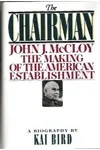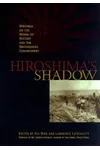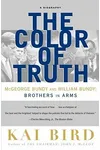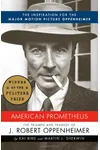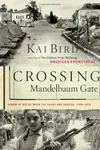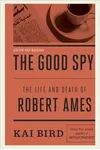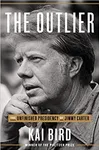Picture an American storyteller who turned the life of the atomic bomb’s creator into a Pulitzer Prize-winning epic—meet Kai Bird! A journalist and historian with a knack for unearthing the human side of history’s giants, Bird has captivated readers with his meticulous research and empathetic storytelling. From his global childhood to his acclaimed biographies, his work offers a front-row seat to the dramas of the 20th century.
Born in 1951, Bird’s life reads like a novel itself, shaped by a childhood spent crisscrossing the globe. His ability to weave personal insight into historical narratives has made him a standout voice in biography, with works like American Prometheus inspiring Hollywood blockbusters and sparking conversations about science, morality, and power.
The Making of Kai Bird
Kai Bird was born in Eugene, Oregon, but his father’s career as a U.S. Foreign Service officer whisked the family to Jerusalem, Beirut, Dhahran, Cairo, and Mumbai. Named after Kai-Yu Hsu, a Chinese refugee his father met, Bird grew up immersed in diverse cultures, an experience that honed his global perspective. He graduated from Kodaikanal International School in India in 1969, earned a B.A. in history from Carleton College in 1973, and later an M.S. in journalism from Northwestern University in 1975. His early career as a freelance journalist in Yemen and South Asia, alongside his wife Susan Goldmark, laid the groundwork for his incisive writing on international affairs.
Kai Bird’s Unforgettable Stories
Bird’s bibliography is a masterclass in biography, blending rigorous research with a storyteller’s flair. His most famous work, American Prometheus: The Triumph and Tragedy of J. Robert Oppenheimer (2005), co-authored with Martin J. Sherwin, won the 2006 Pulitzer Prize and inspired Christopher Nolan’s Oscar-winning film Oppenheimer. The book paints a nuanced portrait of the physicist who led the Manhattan Project, exploring his brilliance and moral dilemmas.
Bird’s memoir, Crossing Mandelbaum Gate: Coming of Age Between the Arabs and Israelis, 1956–1978 (2010), reflects his childhood in the Middle East, offering a personal lens on the Arab-Israeli conflict. The Good Spy: The Life and Death of Robert Ames (2014) delves into the shadowy world of a CIA officer pivotal to Middle East peace efforts, while The Outlier: The Unfinished Presidency of Jimmy Carter (2021) reexamines Carter’s legacy with fresh empathy. Bird’s style—deeply researched yet accessible—makes complex figures relatable, often highlighting their struggles against the backdrop of historical upheaval.
Why Kai Bird Matters
Kai Bird’s work transcends biography, inviting readers to wrestle with the ethical questions that shaped the modern world. His books on Oppenheimer and Carter challenge simplistic narratives, revealing the human cost of decisions in science and politics. As Executive Director of the Leon Levy Center for Biography at CUNY Graduate Center, Bird mentors emerging biographers, cementing his influence on the genre. His 2024 BIO Award from the Biographers International Organization underscores his role in elevating biography as a vital lens for understanding history.
Bird’s global upbringing infuses his writing with a rare cross-cultural empathy, making his stories resonate across borders. Whether dissecting the Cold War or the Middle East, he reminds us that history is driven by flawed, fascinating people—a perspective that feels more relevant than ever.
- Born: September 2, 1951, Eugene, Oregon
- Key Works: American Prometheus, Crossing Mandelbaum Gate, The Good Spy, The Outlier
- Awards: Pulitzer Prize (2006), National Book Critics Circle Award, Duff Cooper Prize, 2024 BIO Award
Snag American Prometheus and dive into Kai Bird’s gripping world of history and humanity!
